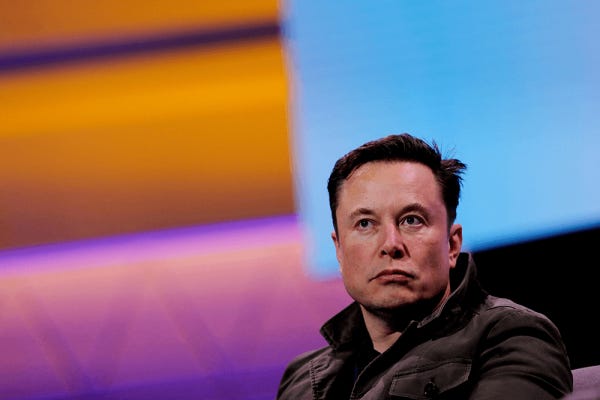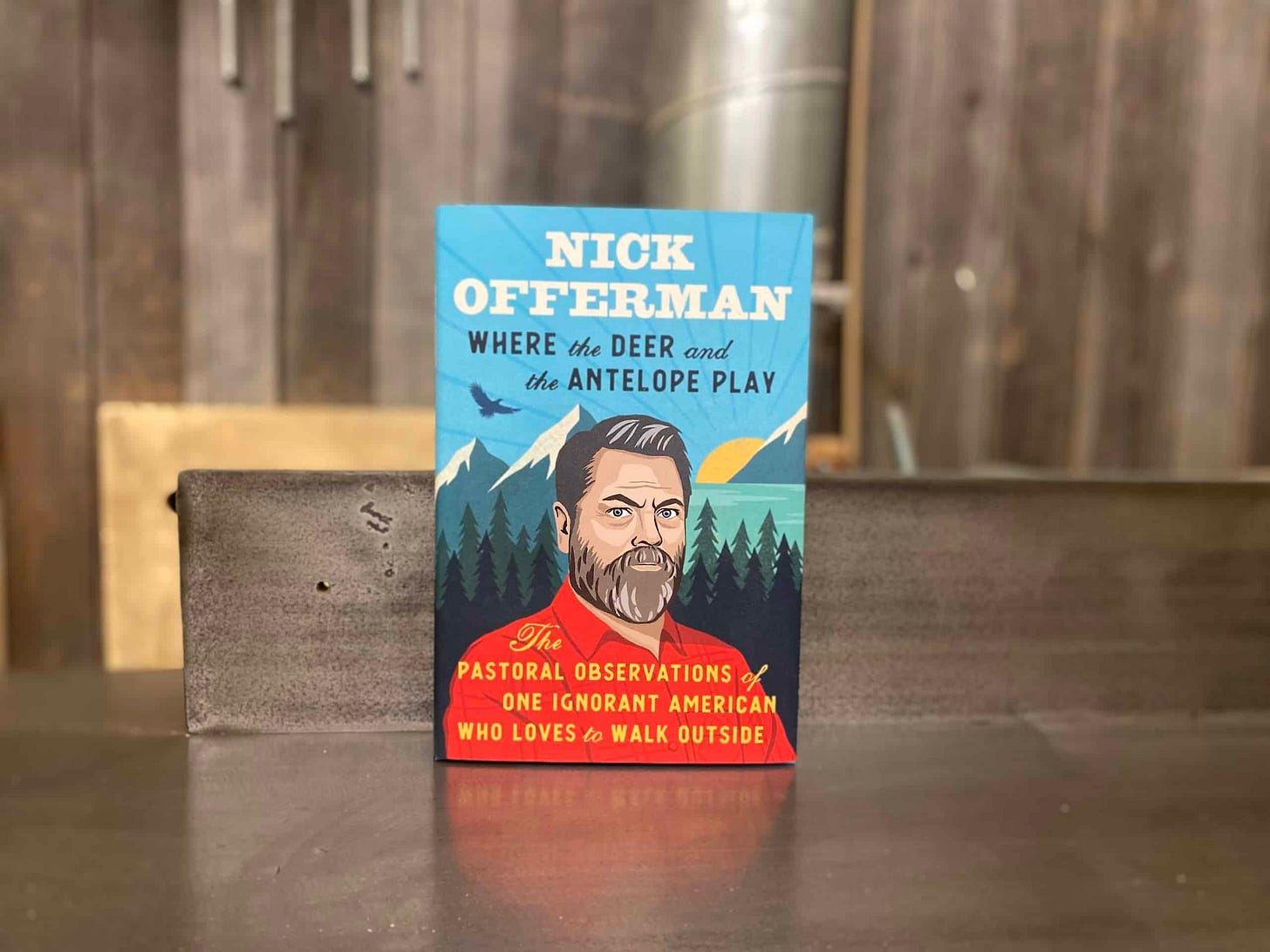We have this weird collective need to put people on pedestals. I saw this a lot working in Christian PR. You would have these leaders in ministry get these massive platforms and elevated to celebrity status. In some cases it was part ego. Many times those individuals were thrust up to those positions by their own fans. It’s a weird tendency we have as humans that I find fascinating and disturbing all at the same time.
I also don’t think it’s healthy. Elevating a single person and finding them nearly infallible (or saying you don’t think they’re perfect but can’t identify a flaw when asked) is bad for society. No human ego could stay grounded with that around them without serious accountability. The rest of us fans are always going to be let down.
This week’s collection is around this theme. There’s more Elon Musk in here than I personally care for but it’s relevant and points to bigger trends in building idols out of tech and the founders who built the products.
What is the Sixth Day Six? Click here for more background. Or don’t.
America’s False Idols | The Atlantic
Scott Galloway usually has interesting things to say, even if I don’t always agree with him. In this case, I do agree with him. The title leads one to believe that this is about how we overglorify tech founders to our own detriment. But he goes deeper than that to talk about how this mindset has had negative ripple effects on our economy and how dual class shareholders have given them more power than they should have.
The name inflation of the Big Tech CEO class corresponds to its wage inflation: Eight of the 10 wealthiest people in the world are current or former chief executives of American technology companies, and their wealth consists almost entirely of shareholdings in those companies. Time’s reigning Person of the Year, Elon Musk, is the richest of all. From 1990 to 2021, the top 1 percent of households increased their share of the nation’s wealth from 24 percent to 32 percent…
…Until very recently, going public implied the transition of a company from a benevolent dictatorship to a republic, where ownership is distributed and decision-making power lies in an elected body (the board). This is less and less the case in tech. Company insiders, usually the founders and the principal venture capitalists, are securing unprecedented control of the public companies that employ them.
Click here to read the full article.
America, Can We Talk About Our Guru Problem? | The Dispatch
David French echoes some of the same sentiment that Scott Galloway does but from a different angle. Instead of looking at this through an economic lens, he looks at this from more of a cultural lens. French focuses squarely on the hero worship, why we fall for it, and why it should stop.
As I’ve written before when pondering the problem of Christian celebrity, America’s wealthiest and most famous people might stop thinking they belong on Mount Olympus if we stopped treating them like Greek gods.
It’s human to seek earthly saviors, especially in uncertain times. We want to be inspired. We want to find champions who will defeat our enemies. And so we fall for the frauds and beg even those who are genuinely successful to give us more—even when “more” stretches them beyond their ability.
This is a teaching moment. As Sam Bankman-Fried’s crypto empire implodes, as Elizabeth Holmes likely goes to prison, as WeWork lies in ruins, as Elon Musk flails away on Twitter, and as Thielism is exposed as pretentious nonsense, perhaps this is the time when we can finally stop seeking saviors and start saying to even the most rich and powerful among us, “Remember, thou art only a man.”
Click here to read the full article.
Scott Galloway on the chaos at Twitter and what it reflects | CNN
Apologies from two takes from the same person but it fits the theme well. The beginning of this interview with Christiane Amanpour talks more about inflation, the economy and what Galloway calls “The Patagaonia Vest Recession.” However, around the five-minute mark he gets into the lack of guardrails and even uses the exact same quote example that French does above: “Remember, thou art only a man.”
Can Elon Musk Fit Through the Eye of the Needle? | Soujourners
Tyler Huckabee takes direct aim at Elon Musk but speaks more to the wealth side of the hero worship from a New Testament angle. I’m not as antagonistic toward the general idea of wealth that he comes across as here but I very much agree that it’s not a) an indicator of competence or b) an indication of God’s favor. He challenges readers to change our perspective, which is uncomfortable but necessary for all of us.
And I think this is where we must start to adjust our perspective on wealth: We must reject the idea that wealth has any bearing on a person’s true acumen, potential, or value. This is harder than we might think and takes some deliberate work. Frankly, it might be harder and more important to rethink our ideas around poverty, recognizing that a person’s lack of money doesn’t tell you anything about the value of who they are, what they’re capable of, or what they have to offer the world.
Click here to read the full article.
New Chief Calls FTX’s Corporate Control a ‘Complete Failure’ | The New York Times
When you are put on a pedestal as a genius, you often are surrounded by “yes” men who won’t second guess anything you’re doing if your brand is strong enough. The FTX situation may go down in history as one of the worst instances of this. In fact, this article talks about how the guy who managed Enron after it’s collapse said that he had never seen such a complete failure of corporate control. Yes, even the Enron dude is saying “yikes.” It’s a huge collapse built on another cult of personality (see: WeWork, Theranos, etc.).
The collapse of FTX was a shocking fall for Mr. Bankman-Fried, who was widely considered one of the most reliable figures in the freewheeling, loosely regulated crypto industry.
Once worth as much as $24 billion, Mr. Bankman-Fried became a frequent presence in the halls of Congress, where he testified about the future of the crypto industry and tried to shape legislation governing the industry. He rubbed shoulders with famous actors and athletes, once appearing onstage at a conference in the Bahamas with former President Bill Clinton and Tony Blair, the former British prime minister. He was also a prolific and much-sought-after political donor, contributing more than $5 million to President Biden’s 2020 election effort.
Click here to read the full article.
How a handful of tech companies control billions of minds every day | Tristan Harris
If we have an issue with gurus in society and that we hand too much control to too few people, Tristan Harris will make you feel even worse about it. If you have someone without guardrails and nobody saying “remember thou art only a man” in their ears…should we trust them with our attention? This video is basically a Cliff Notes version of the documentary The Social Dilemma.
What Book Am I Reading Right Now?
I’m currently reading “Where the Deer and the Antelope Play” by Nick Offerman. So far it’s just his description of a camping trip he goes on in Glacier National Park with some buddies of his. It’s a memoir and a lot different than what I normally pick up but it’s been a relaxing read.








